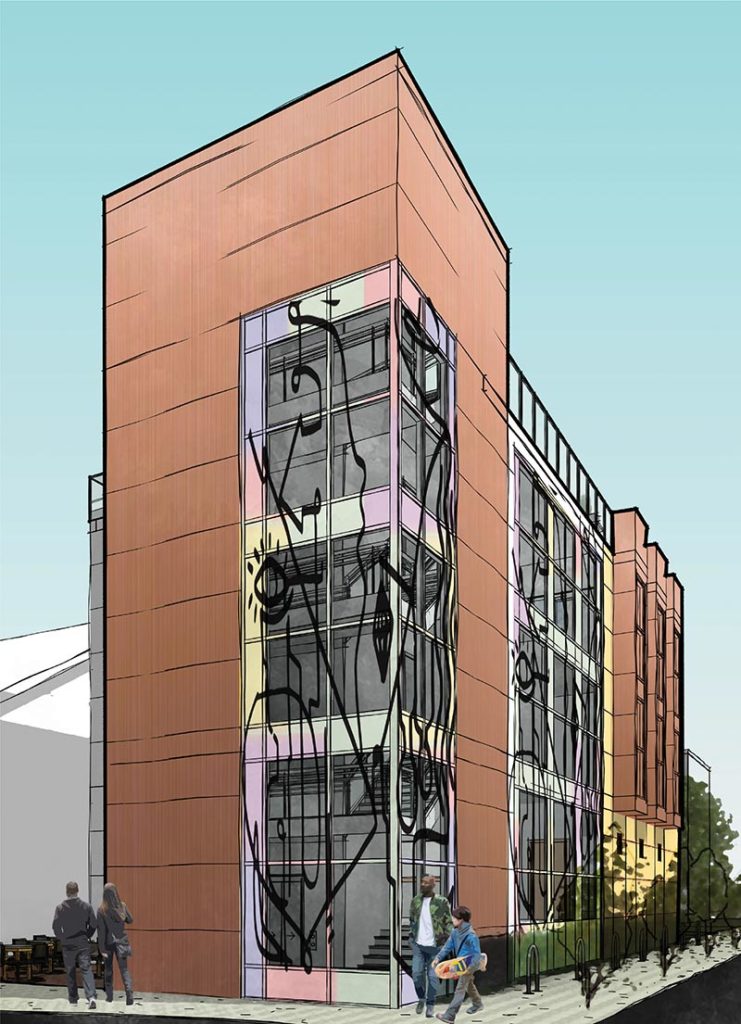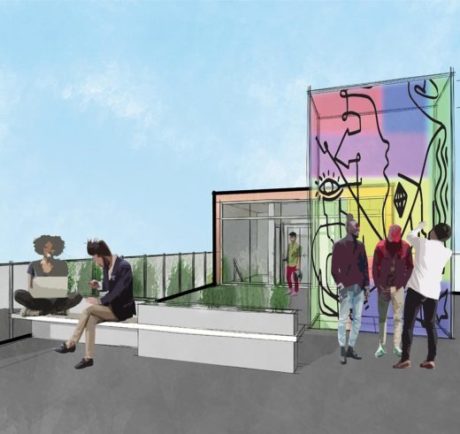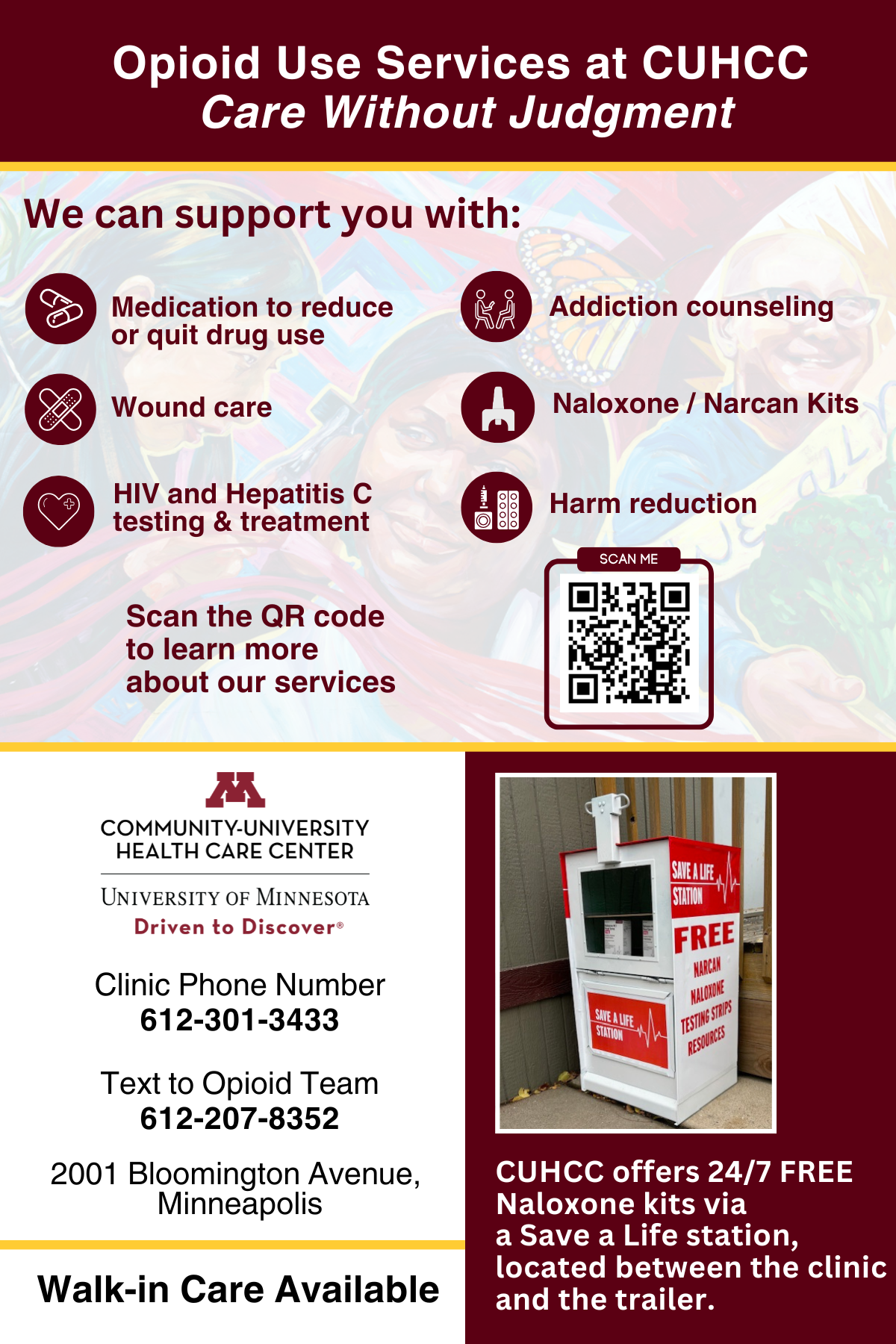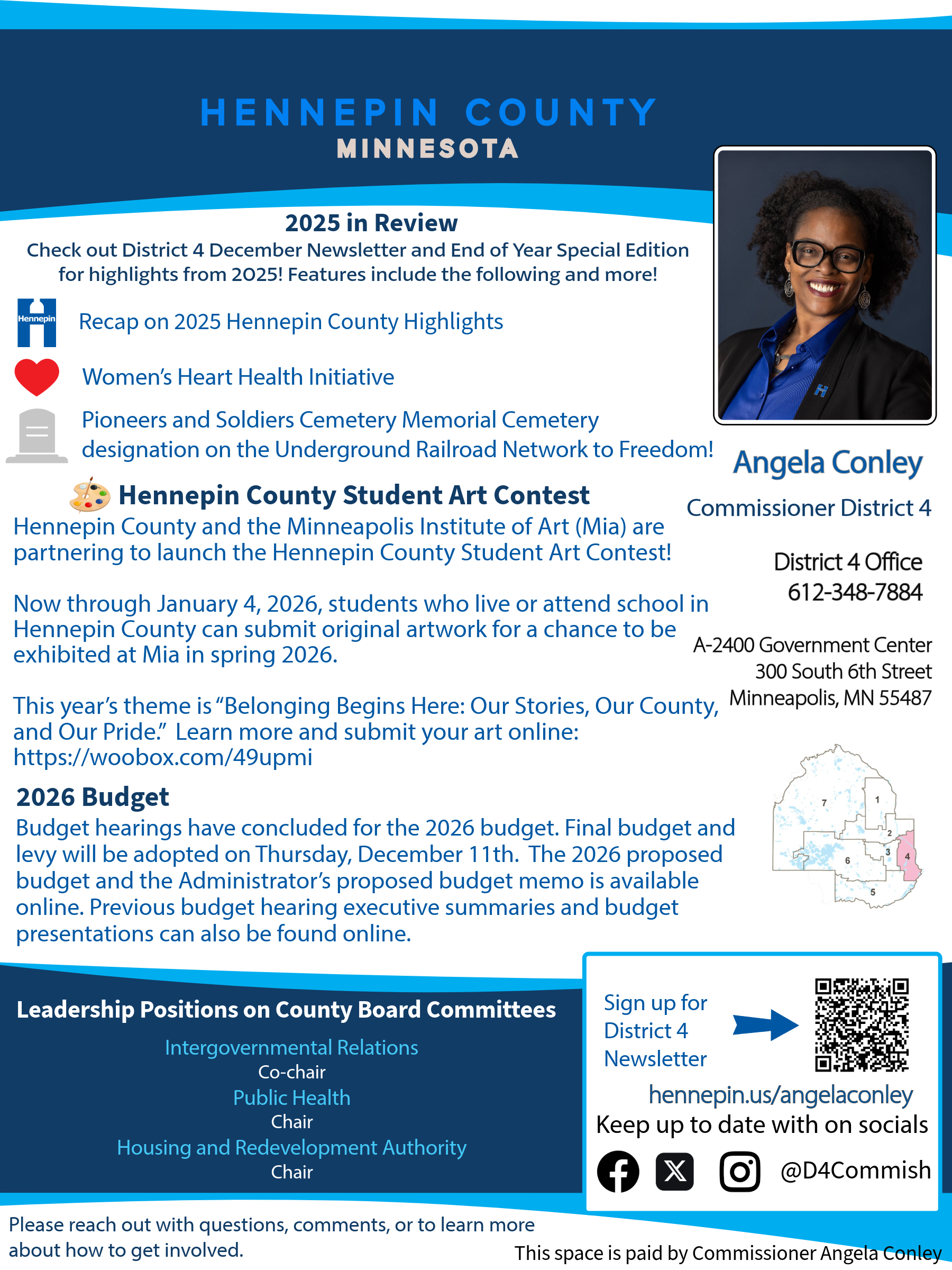
Dreamland on 38th Street – Cultural Healing through Culinary Heritage
Serial entrepreneur and civil rights advocate Anthony Brutus Cassius knew the dreamers of his day needed a place to gather and plan, create and connect. Cassius first found that space at FosterӪs Sweet Shop, where he and other prominent black Minneapolitans met monthly and strategized for civil rights in the 1930s. Among friends and fellow reformers, Cassius learned the importance of social entrepreneurism. Inspired by what he found at FosterӪs Sweet Shop, Cassius opened the Dreamland Caf̩ on 38th Street and Fourth Avenue in 1937, in the heart of the south sideӪs black community. In highly segregated Minneapolis, many considered the Dreamland Caf̩ to be the only social center for African-Americans, and the restaurant drew celebrities like Lena Horne and Frankie Lymon when they came to town.

Dreamland Café Reimagined
Today, 38th street is poised to become one of six cultural districts in Minneapolis, created to drive economic development in the city”™s most diverse neighborhoods. Dreamland on 38th will be an anchor project in the 38th Street Cultural Corridor. Dreamland on 38th is a joint venture between the nonprofit Cultural Wellness Center, one of the original founders and co-owners of the Midtown Global Market, and African-American entrepreneur Dr. Freeman Waynewood. Building on the experience and expertise of the Cultural Wellness Center, Dreamland on 38th will provide cultural healing through culinary heritage.
The vision is to create a flexible, supportive work space for African-American entrepreneurs to start and expand small businesses focused on the intersection of food and heritage””and to offer a dynamic space to host community gatherings and events. Dreamland on 38th will leverage the Cultural Wellness Center”™s many cultural, community and business networks to create social and economic opportunities that enrich African-American entrepreneurs, entities and services.
With its unique mission, Dreamland on 38th honors the legacy of A.B. Cassius, his social entrepreneurism, his commitment to building a strong black community in Minneapolis””and his focus on food as a way to bring people together.
Core Aspects of the Project
Dreamland at 38th features the construction of a three-story, 7,500-square-foot building on a vacant parcel at 38th Street and 3rd Avenue South. Since 2018, the Cultural Wellness Center and Dr. Waynewood have been collaborating with 4RM+ULA, an African-American-owned architecture firm, to design a building to house the:
- Dreamland Co-Café, an innovative food business incubator program and commercial kitchen anchored by Dreamland Culinary Heritage, an established African-American-owned catering business incubated by the Cultural Wellness Center;
- Cultural Wellness Center”™s administrative offices, from which they will offer entrepreneur development services, co-working space and knowledge production in education, housing and health; and
- Community meeting and event space, including a rooftop with downtown views.
Dreamland Co-Café will promote culinary heritage by expressing cultural healing and connection through food. Dreamland will be a space centered upon listening, eating and being together””and one dedicated to enhancing the nonprofit”™s mission of cultural healing through community cultural education. The building will be jointly owned by the Cultural Wellness Center (51%) and ATJW, LLC (49%), which represents Dr. Waynewood.
Dreamland on 38th is a coordinated and collaborative effort, working in concert with other anchor organizations in the 38th Cultural Corridor, including Kente Circle, Sabathani Community Center and the Spokesman-Recorder””all African-American-focused organizations dedicated to promoting the health, well-being, education and economic security of people within the cultural district.


Program Outcomes
The Cultural Wellness Center believes that inside every human resides a spark””and that they help ignite that spark. Dreamland on 38th will fuel their work and mission, leading to positive outcomes for Minneapolis in general, and the African-American community specifically.
- Entrepreneurship: 5+ businesses started each year
- Job creation: Businesses started or supported by the Cultural Wellness Center will create and retain 60+ jobs per year
- Community building: More than 5,000 community residents will participate in community events each year
- Growth: 20+ businesses will grow in a stable and sustainable manner
In addition to these program outcomes, preventing gentrification of the 38th street area is a goal of Dreamland on 38th. Cultural culinary entrepreneurship is an anti-gentrification strategy, which supports the underlying mission of the cultural districts.
Financial Analysis
The Cultural Wellness Center is committed to financial discipline and the long-term financial viability of both the proposed real estate development project and its organization. The nonprofit is structuring the real estate project financing to ensure that it does not put undue financial pressure on either the entrepreneurs using the space or the Cultural Wellness Center. Toward this end, the Cultural Wellness Center has carefully thought through the project costs, project financing plan, project operating plan and its organizational operating plan (as it relates to this project).
Culture: A Powerful Resource for Health and Healing
The Cultural WellÂness Center creates a space and owns a proÂÂÂÂcess for people to study their own culture””and in doing so, uncover the power to heal themselves and build community. The organization primarily serves people of African heritage, as many of its philosophies and practices are rooted in African culture, though its process of cultural exploration is relevant to all cultures. When people value their own culture and increase their own understanding of who they are, it allows them to move through the world connected to something larger than themselves””and connected to others in an affirming and positive way. Healing happens when people recognize and accept the wisdom within themselves and their elders and tap into their cultural practices, disciplines and philosophies. The health of one”™s cultural identity is directly related to personal health, the health of one”™s community and cultural group.
For over 23 years, the Cultural Wellness Center has helped countless people improve their cultural wellness, leading them to better understand themselves and connect to their community, thereby reducing isolation and loneliness and increasing health and well-being. Their work gives people, particularly those of African descent, a voice. Being a person of color in Minneapolis can be isolating given the relative lack of diversity in many spaces. By building cultural wellness, the organization better equips people to be their authentic selves as they navigate dominant culture.
Why Now, Why This Project
At its core, Dreamland on 38th is about cultural heritage and cooperative economics. The project features African-American ownership and African-American leadership focused on developing African-American entrepreneurs in a space that will reflect African philosophy, art and culture, an event and social space where people of African descent will feel truly welcome and at home. The Cultural Wellness Center believes such a space is desperately needed and will add value to the Twin Cities as a whole, creating a place for African-Americans to connect and support each other and share their culture with the broader community.
Across the Twin Cities, companies are recruiting African-Americans to relocate here, only to have them leave because they feel isolated and disconnected. Dreamland on 38th will create that sense of connectedness and community for all African-Americans, on its own and as part of the 38th Cultural Corridor. The Cultural Wellness Center envisions that the Dreamland Co-Café will be the premier place for Africans, African Americans and the Diaspora””and the entire community””to experience and appreciate African culture, including food, music, art and ceremonies. Dreamland on 38th is both much-needed ecÂonomic development and cultural presÂervation. The collaborative project honors the area”™s history as an African-American business district, while embracing its future as a vibrant cultural corridor.









